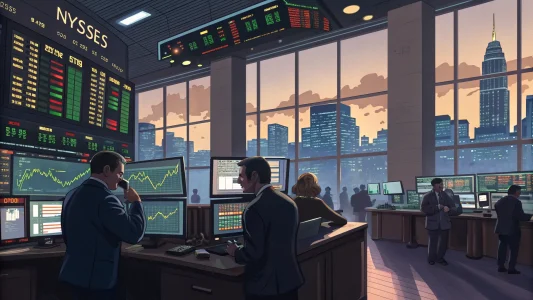Change is a constant, an inevitable part of life that we cannot control. Yet, many of us fear it. This fear often stems from the unknown, the uncertainty that change brings. However, a profound saying resonates deeply with many of us: “When the pain of the current reality becomes greater than the fear of change, that’s when we change.” This statement encapsulates a profound truth about human nature and our capacity to adapt and evolve.
Table of Contents
ToggleUnderstanding the quote
The quote suggests that we, as humans, are more likely to embrace change when the discomfort of our present circumstances outweighs our fear of the unknown. It’s a testament to our resilience and our ability to adapt to new situations, even when they seem daunting or overwhelming. This concept isn’t just applicable to our personal lives, but also to our professional lives, societal norms, and global issues.
Interpreting the pain of the current reality
The first part of the quote, “When the pain of the current reality becomes greater,” refers to a state of discomfort or dissatisfaction with our present circumstances. This could be anything from a job that no longer fulfills us, a relationship that is causing us more harm than good, or a societal issue that we feel strongly about. The pain could also be physical, such as a health issue that requires us to change our lifestyle.
This pain or discomfort is a signal that something needs to change. It’s a wake-up call, a nudge from our subconscious mind telling us that we are not happy with how things are. It’s a sign that we need to take action and make a change to improve our situation.
Overcoming the fear of change
The second part of the quote, “becomes greater than the fear of change,” refers to the fear and apprehension that often accompany the prospect of change. Change is scary because it involves stepping into the unknown, leaving behind the familiar and venturing into uncharted territory. It requires us to step out of our comfort zone, to take risks, and to face potential failure.
However, when the pain of our current reality becomes too great to bear, it outweighs our fear of change. We reach a tipping point where the prospect of staying the same is more terrifying than the prospect of change. This is when we find the courage to embrace change, to take that leap of faith, and to step into the unknown.
The process and rewards of change
This process of change is not easy. It requires courage, resilience, and a willingness to face our fears. It involves letting go of old habits, beliefs, and behavior patterns that no longer serve us. It requires us to be open to new possibilities, to be willing to learn and grow and to be adaptable in the face of new challenges.
However, the rewards of embracing change are immense. Change brings growth, evolution, and progress. It allows us to break free from the shackles of our past and move forward towards a better future. It gives us the opportunity to reinvent ourselves, discover new strengths and abilities, and create a life that is in alignment with our true selves.
Embracing change for a better future
In conclusion, the quote, “When the pain of the current reality becomes greater than the fear of change, that’s when we change,” is a powerful reminder of our capacity to adapt and evolve. It’s a testament to our resilience and our ability to overcome challenges. It encourages us to embrace change, not as something to be feared — but as an opportunity for growth and transformation. So, the next time you find yourself in a situation where the pain of your current reality is greater than your fear of change, remember this quote. Use it as a catalyst to embrace change and to create a better future for yourself.
Frequently Asked Questions
Q. What does the quote “When the pain of the current reality becomes greater than the fear of change, that’s when we change” mean?
The quote suggests that humans are more likely to embrace change when the discomfort of our present circumstances outweighs our fear of the unknown. It’s a testament to our resilience and our ability to adapt to new situations, even when they seem daunting or overwhelming.
Q. What is meant by “the pain of the current reality”?
The “pain of the current reality” refers to a state of discomfort or dissatisfaction with our present circumstances. This could be anything from a job that no longer fulfills us to a relationship that is causing us more harm than good or a societal issue that we feel strongly about. The pain could also be physical, such as a health issue that requires us to change our lifestyle.
Q. How can we overcome the fear of change?
Overcoming the fear of change often happens when the pain of our current reality becomes too great to bear, outweighing our fear of change. We reach a tipping point where the prospect of staying the same is more terrifying than the prospect of change. This is when we find the courage to embrace change, to take that leap of faith, and to step into the unknown.
Q. What does the process of change involve?
The change process requires courage, resilience, and a willingness to face our fears. It involves letting go of old habits, beliefs, and patterns of behavior that no longer serve us. It requires us to be open to new possibilities, to be willing to learn and grow and to be adaptable in the face of new challenges.
Q. What are the rewards of embracing change?
The rewards of embracing change are immense. Change brings growth, evolution, and progress. It allows us to break free from the shackles of our past and to move forward towards a better future. It gives us the opportunity to reinvent ourselves, to discover new strengths and abilities, and to create a life that is in alignment with our true selves.
Q. How can we use this quote to embrace change for a better future?
The quote powerfully reminds us of our capacity to adapt and evolve. It encourages us to embrace change not as something to be feared but as an opportunity for growth and transformation. So, the next time you find yourself in a situation where the pain of your current reality is greater than your fear of change, remember this quote. Use it as a catalyst to embrace change and to create a better future for yourself.















